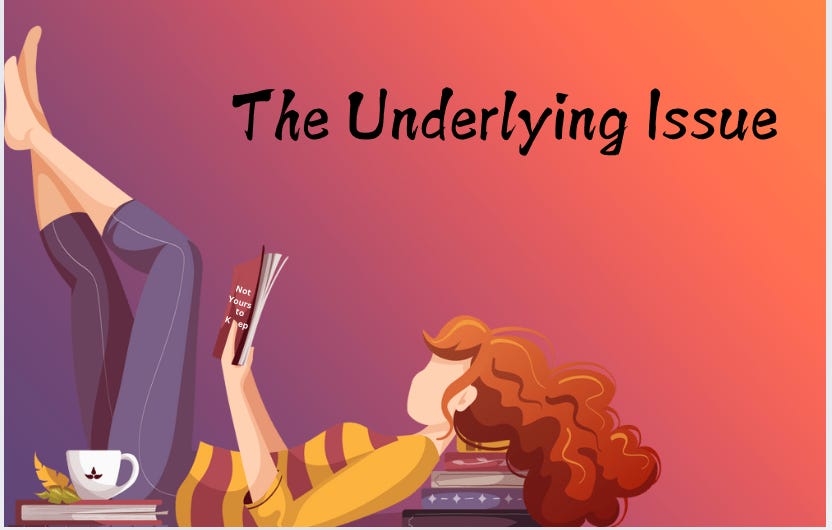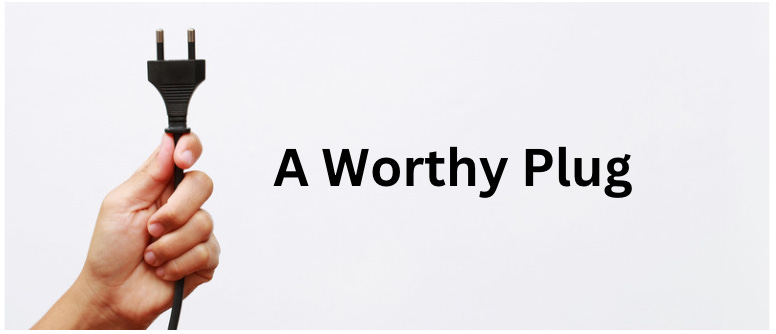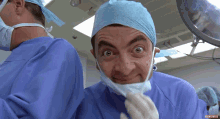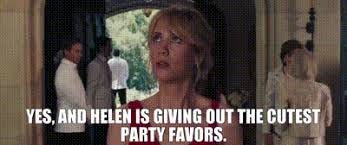The Underlying Issue
Getting Under The Cover
Adoption Is Complex And Nothing Like On TV
Why I Chose Adoption for the Narrative of Not Yours to Keep
November is Adoption Month, which feels like the time to go under the cover and explore why my debut novel, Not Yours to Keep, revolves around the world of adoption.
This author’s first career was in domestic infant adoption. How many people can say they loved their job? 🙋♀️ It was wonderful to get to know the couples who’d been through so much, but whose hearts remained open and eager to welcome a non-biological member to their families. It was intoxicating to be the one to call them, after way too long a wait, to let them know their baby had arrived. And it was especially gratifying to advocate for birth mothers who were too often shocked to learn they had rights.
Those of us working in adoption all those years ago thought we were very progressive in our viewpoints and policies. In retrospect, there was so much we didn’t know. Some powerful discussions with adult adoptees shed light on more contemporary perceptions of adoption. The aim is to shift focus onto the babies’ earliest biopsychosocial experience. Even after many so years, the fight for legislation to give a voice to adoptees, to do more to educate prospective adoptive parents, and to improve the rights and support of biological mothers continues. Adoption laws remain nearly unchanged from the late ‘80s; waiting to adopt is just as strenuous; and it’s still difficult to access records or connect with birth parents despite the internet’s bandwidth.
It’s rather astonishing, the lack of progress, and the newfound understanding of the impact of adoption on adoptees. The choices birthmothers and adoptive parents made not only changed their future, but the baby’s future too. The laws and agency policies and procedures rode on the assumption they knew what was best for the child. But what did anyone know?
Imagine decades after a career in adoption you silently ride in the back of a cab with an older driver, greyed from head to unshaven face. The long fingers gripping the wheel show signs of arthritis. As the ride begins, you’re texting and not paying attention. He knows nothing about you when, without prompt, he announces he’s adopted. There’s a flatness in his emotion that switches to anger as he continues. He rants about living with a sense of abandonment his entire life. He speaks of insecurities from feelings of not being wanted. The need to know who he might’ve looked like drives him crazy. Tears fill his eyes. He wishes his adoptive parents never told him about the adoption.
Adoption is complex, grueling, and emotional. Stories like the cab drivers, not just the emotions he shared, but how it felt to hear it, need to be told. Stories of birth mothers faced with unimaginable choices, of adoptive couples who often go through painful circumstances before choosing adoption, and the stories of the adoptees we all thought we were doing good for.
The goal for Not Yours to Keep was to show a side to adoption not typically portrayed on television. If the book made even one person realize something new about the people who are involved with adoption, then the novel had done its job. Bonus if a reader discovered compassion for someone they had previously stereotyped. Those were the hopes. The unexpected reward, however, has been the readers who have related to a character, reached out and openly, vulnerably, shared their adoption stories with me.

Much of the information below has been <ahem> “borrowed” from Janis Daly’s website.
Hands up if you know the remarkable author Janis Robinson Daly. 🖐️
I “met” Janis last year when she generously donated her services for the Women’s Fiction Writers Association annual auction. As the lucky winner of that package, I received a custom email blast with Janis’ endorsement, which was sent to a proprietary email list of a minimum of 400 book club members. She also included a spotlight feature in her e-newsletter for readers in the month of my launch, followed by a detailed summary of the resulting data.
And now, Janis has launched a suite of Author Marketing Services to assist other authors with unique marketing strategies and consultation. Daly looks forward to working with other authors to drive toward success in reader engagement and book sales. Learn more here.
By a stoke of chance (ok, it was an auction I was gambling) this debut author benefited from Janis’ generosity and talent. I’m so grateful to her and for her introduction to the book club world.
Since we’re talking about Janis Daly: check out her two beautifully written historical fiction novels:
The Unlocked Path, celebrates pioneering women doctors at the turn of the 20th Century. Its sequel, The Path Beneath Her Feet, honors the work of the American Women’s Hospitals in rural America during the 1930s.
And Now For Something Completely Serious…
Six Halloweens Ago, My Life Changed.
For those of you just joining us, the story begins with a diagnosis of a small brain aneurysm which required surgery when it grew to 4mm. You can read details in the Snarkastic archives.
Waking before dawn was eerie, filled with trepidation, as any Halloween should start. Flanked by my family, we stood in front of the hospital doors, hard swallowing, pit in stomachs, clutching hands. Too early for visitors, not yet time for shift changes, and lights still dimmed, our shallow breaths echoed as we forged through the vast hallway to the elevator. After check-in, the receptionist nods toward an area of most uncomfortable chairs for us to wait. We obediently sit, knowing the details of what’s coming, but not liking the odds. Minutes tick by as we watch for the grim reaper to round the corner. Someone calls my name.
There’s not even a speck of anxiety at this point. A certain numbness has replaced it. It’s the inexorable realization that nothing is in your control. Not your body. Not the outcome. Wearing the requisite hospital gown with the drafty rear, and lying on a chair/bed, we wait and wait and wait and wait. When the nurse finally comes to check my vitals, I’m punch drunk and making inappropriate jokes, as I’m prone to do in uncomfortable situations. After asking my name, she asks me what I’d like to be called. I say, “call me a cab.”
Since the diagnosis over a year ago, I’d been waiting for the doctor, the nurse practitioner, someone, anyone, to say none of this was real. There never was a brain aneurysm. It was a ‘whoops’, I could forgive.
My family and I bravely say goodbye, each of us protecting the other. Our eyes gave away our fear this could be the last time we’d see each other, but no one would say it out loud. Secretly, I’m terrified I’ll survive but not know my own children.
Lying on a table in a freezing cold operating room, people dressed in scrubs (one could only assume they were medical) moved around talking about me without acknowledging me. One of them fruitlessly stabs my hand to insert an IV. I want to protest, but it seems the anesthesiologist has dosed me without warning. The doctor puts his face close to mine and removes his mask. In my now drugged state, his face is fun-house style distorted, but I still know him, so that’s something.
It feels like a few second later, not hours, when they wake me. The doctor is talking to me as though I wasn’t under the effects of some dang strong anesthesia, so only bits and pieces sink in. Here’s what I got:
Evidently, I’m alive.
The small 4mm aneurysm I went in for was actually bigger and growing a twin off it. It was quite unstable and would have burst if I’d waited much longer to have the surgery.
There are two stents in my brain.
The surgery went great.
If I don’t stroke out in the next 48 hours, they have high hopes for my recovery.
Pretty impressive amount of info to comprehend for someone barely conscious, right? Oh, one more thing, the doctor left me a party favor—another too tiny to fix aneurysm on the other side of my brain.
Now that the surgery is done, it’s critical to get me into a CAT scan pronto. My family is waiting outside the door. I’m still groggy but high as a kite. I’m answering questions and cracking jokes. Most importantly, I know them. I call them by name. I’m going to be okay.
Well, my friends, you may think that is (finally) the end of the brain aneurysm story I’ve been sharing, but you’d be oh so very wrong. Stay tuned….
Last Licks
Strudel the Doodle turned 8!
Wish her a Happy Birthday…go on, you know you want to 🐶 🎉











I'm currently completing revisions on my fourth book, in which the MC Roseann is a psychotherapist who turned her life around from self-destruction, but then reverts to her "bad girl" behavior when events occur that remind her she is useless, bad & unworthy -- which is what her adoptive mother always told her, after she unexpectedly gave birth to a biological daughter when Roseann was three. So Roseann carries the scars not only of abandonment but also of shame.
When my mother killed herself in front of me when I was 2 1/2, my father gave me & my brother away to his youngest sister 2500 miles away, but when that woman had a baby girl two years later, I was unwanted; she gave me away (but not my brother) to her oldest sister in the next state. My new owner adopted me, changed my name, and constantly reminded me "NO ONE wanted you. Your Daddy didn't want you. I took you because I had three boys and no girls to help around the house. So if you don't get to work, it's off to the orphanage you go."
Although I ran away from the physical & psychological abuse (even death threats!) when I was 15, you cannot imagine how many years I fought all those buried traumas.
And now, even when I plan a story that has none of that in the plot, somehow my characters inevitably go there. First book had dysfunctional family, violent deaths and Narcissistic Personality Disorder. Sequel found the victim of all that trauma suffering from ComplexPTSD, and the 3rd/last of trilogy has his wife struggling to protect herself & their child from his disordered behavior and also reclaim her true Self.
It stays with you long after you think you've escaped it.
Hi Zelly, I suspect you already know Alice Stephens. If not, look her up. I haven't read your book yet, but I know Alice has similar views (maybe more emphatic than yours - she's adopted and rails against it.) Here's a recent review of hers: https://www.washingtonindependentreviewofbooks.com/bookreview/relinquished-the-politics-of-adoption-and-the-privilege-of-american-motherhood